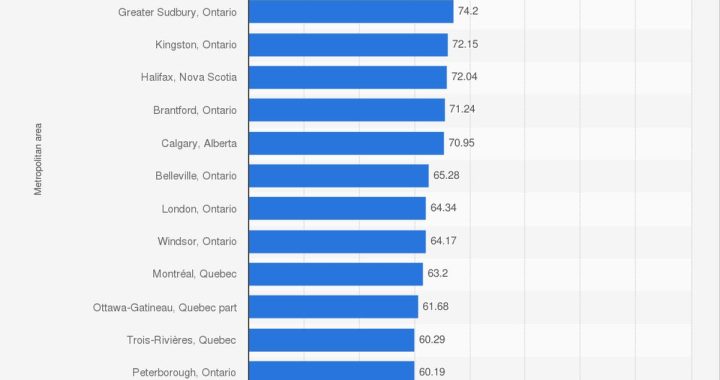Planning a trip to Australia? Check out the point based system for Australian Immigration

Point Based System for Australian Immigration
In the past, Ukip suggested the Point Based System of Australian immigration as the best model for the UK policy. Presently, it is also considered the same by the Brexit campaigners. In fact, this can be said as the best arm for infamous border control measures of the country. Australian immigration is presently based on a number of factors which are discussed in the later part of this post.
During the year 2014- 2015, in Australia, skilled migrants comprised about 68 percent out of the 190,000 places available in the migration programme, which is completely separate from humanitarian programme.

The Point Based System for Australian immigration which is being followed presently generally controls the number of workers immigrating into the country. In words of the Immigration Department, it is “specifically designed to target migrants who have skills or outstanding abilities that will contribute to the Australian economy” and meet the shortage of labors as well.
There is the points-based assessment, which one needs to pass to get the Australian skilled visas. There are different types of skilled visas available. And the Australian immigration points are calculated on the basis of various factors. They are discussed below:
Age factor
Applicants basically need to be under 50 years old and those aged between 25 – 32 will start with almost half of the required points, which is 60. And again, those who are aged between 45 – 49 will start automatically with 0.
| 18 to 24 | 25 Points |
| 25 t0 32 | 30 Points |
| 33 t0 39 | 25 Points |
| 40 to 44 | 15 Points |
| 45 to 49 | 0 Points |
Ability in English language
The basic competence is required to be proved by the applicants. Points are awarded only if the language skill of the applicants is found to be “superior” or “proficient”.
English (OET/IELTS)
|
Superior English OET A/ IELTS 8 Competent |
20 points |
| Proficient English OET B/IELTS 7 | 10 point |
| English OET C/ IELTS 6 | 0 points |
Experience and educational qualifications
The remaining points from 60, which is the bare minimum that applicants need to achieve under the Australia’s points-based immigration will be awarded on the basis of employment history and qualifications. It also includes factors like tertiary education as well as required criteria fulfillment by the partner of the applicant. For example, a doctorate degree from a well reputed institution is worth 20 points. In case of prospective residents, they can get the opportunity to gain points from the previous work experience in Australia. Again, they can also gain points if they have studied in some specific parts of Australia, like metropolitan area that constitutes of low population growth.
| Doctorate from a well reputed institution or an Australian educational hub | 20 points |
| Min. Bachelor degree, including Masters or Honors, from an Australian educational center | 15 points |
| Australian diploma degree, trade qualification achieved in Australia, or award from any reputed standard | 10 points |
Occupation
In case of some of the visa subclasses, sponsorship by a family member, an employer or government nomination is essential.
Sponsorship/Nomination
| Nomination by Territory or State government / sponsorship by an Australia eligible family (visa subclass 489 only) | 10 points
|
| State or Territory government (visa subclass 190 only) | 5 points |
In case your employer is not sponsoring you, then your job need to be under the approved list. For each of the occupations in the list there is a specific number of seats available, which can be accepted. For example, for the year 2015-2016, Australia has approved 1000 visas for company secretaries, auditors and corporate treasurers– 1788 for production, mechanical and industrial engineers – 1000 for engineering professionals (others).
But, for school teachers, cartographer, etc. there are several places available.
Overseas Work Experience (skilled occupation or equivalent or related closely)
| 3-5 years (past 10 years) | 5 points |
| 5-8 years (past 10 years) | 10 points |
| 8-10 years (past 10 years) | 15 points |
Australian Work Experience (nominated for skilled job or related occupation, during the invitation period
| 1-3 years (past 10 years) | 5 points |
| 3-5 years (past 10 years) | 10 points |
| 5-8 years (past 10 years) | 15 points |
| 8-10 years (past 10 years) | 20 Points |
*The maximum point that can be awarded to an applicant is 20, combining both the Australian and overseas skilled employment
Other factors influencing the point based system
| Qualifications in credentialed community language | 5 points |
| Study in metropolitan or regional area in Australia (does not include distance education) | 5 points |
| Qualifications of Partner | 5 points |
| Completion of Professional Year, for 12 months minimum in the 4 years (till before the invitation date) | 5 points |
What to do if applicant does not get enough points?
Well, the game is not over if you does not able to get the score required for the Australia’s points-based immigration. But, you always have the chance to improve. Only, what you cannot change is your age. You can improve your IELTS score. How? Well, wait for some more years to gather the work experience or visit Australia to study a course.
Always remember, there are many types of visas which are not based on the point system, which also includes the skill-based visas. This kind of visa along with parent visas and partner visas are solely bases on employment sponsorship. So, in case you do not able to manage 60, then you can definitely choose some other pathways to go to Australia.
Got an issue to discuss with leading Immigration consultants regarding Immigration to US or Canada? Join our facebook group ImmigrationCanada and post your query

 Express Entry Updates for 2025: What Immigrants Need to Know
Express Entry Updates for 2025: What Immigrants Need to Know  Navigating Challenges: Canadian Cities, with High Crime Rate, moderate Job Opportunities, Where Immigrants May Struggle to Settle
Navigating Challenges: Canadian Cities, with High Crime Rate, moderate Job Opportunities, Where Immigrants May Struggle to Settle  The Shadowy Trade: Understanding Canadian “Coyotes” for Immigration and Protecting Yourself
The Shadowy Trade: Understanding Canadian “Coyotes” for Immigration and Protecting Yourself  Now Canada Can cancel the Travel Visa or Study Permit issued- What You Need to Know About Visa, Work, and Study Permit Cancellations
Now Canada Can cancel the Travel Visa or Study Permit issued- What You Need to Know About Visa, Work, and Study Permit Cancellations  Impact of Anti-Immigrant Sentiment on Canada’s Provinces and Job Sectors
Impact of Anti-Immigrant Sentiment on Canada’s Provinces and Job Sectors  America’s 2025 Deportation Crackdown: Should You Stay or Self-Deport?
America’s 2025 Deportation Crackdown: Should You Stay or Self-Deport?